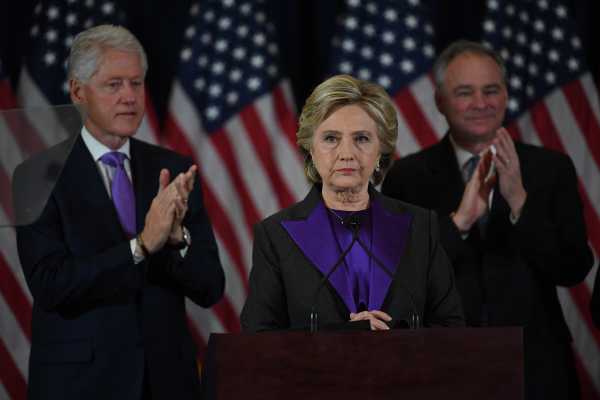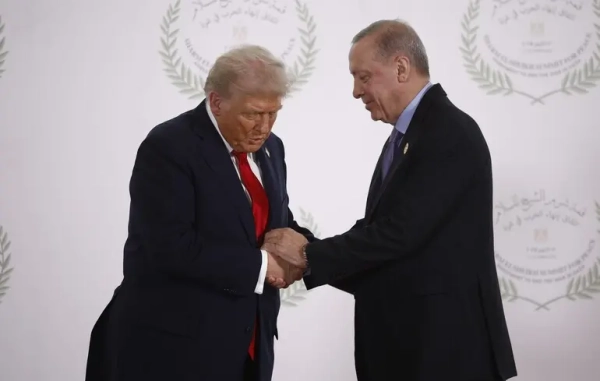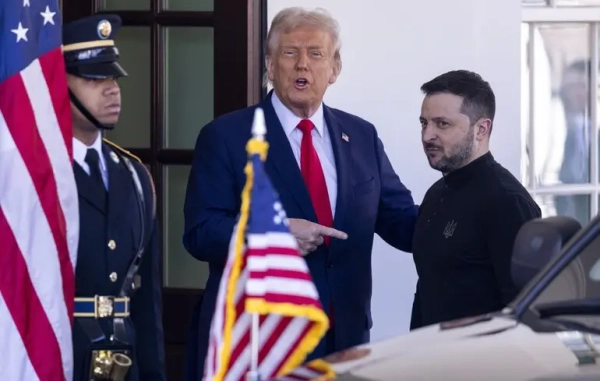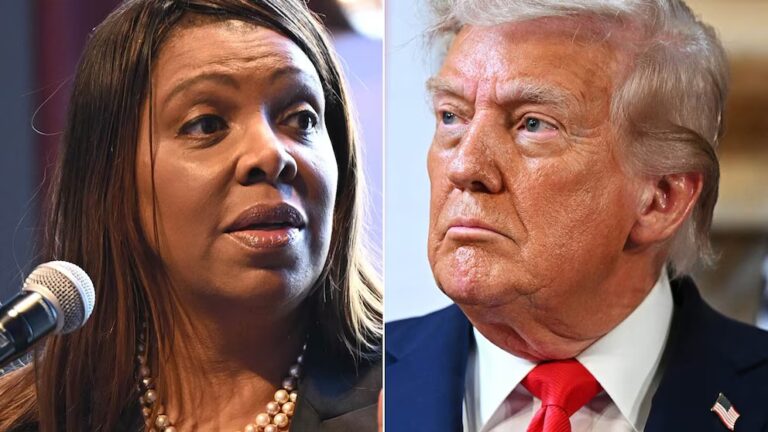
The Supreme Court announced on Friday that it will hear a pair of cases — Chiafalo v. Washington and Colorado Department of State v. Baca — asking whether members of the Electoral College can be penalized or removed from office if they do not vote for the presidential candidate chosen by their state’s voters.
Both cases involve “faithless electors” from states that supported Hillary Clinton in the 2016 presidential elections, but who wanted to cast their electoral vote for another candidate instead.
The three electors in Chiafalo, according to the Washington Supreme Court, “announced they would not vote for either Clinton or Trump and would instead attempt to prevent Trump from receiving the minimum number of Electoral College votes required to become president.” In an apparent effort to advance this goal, they cast their electoral votes for the Republican former Secretary of State Colin Powell; the state of Washington fined each of these electors $1,000.
Baca involves a Colorado elector who attempted to vote for then-Ohio Gov. John Kasich, a Republican. The state removed this elector from office and replaced him with someone who voted for Clinton. It also concerns two electors who wanted to vote for someone other than Clinton, but ultimately chose not to so they wouldn’t be removed.
The legal dispute in Chiafalo and Baca is fraught, and it turns on a narrow distinction between what restrictions a state may place on someone who seeks to join the Electoral College and what restrictions can be placed on someone who is already a member.
In Ray v. Blair (1952), the Supreme Court held that a party’s proposed slate of electors may be required to pledge that they will vote for their party’s nominee. But Ray also left unanswered the question of what happens if an elector violates this pledge after they are appointed to the Electoral College.
Ray held that “even if such promises of candidates for the electoral college are legally unenforceable … it would not follow that the requirement of a pledge” is unconstitutional. But that holding explicitly avoids the question of whether an elector’s pledge to support their party’s nominee can be enforced if violated.
Chiafalo and Baca now place that question squarely before the justices — and the argument that faithless electors may choose not to vote for the candidate they pledged to support is hardly frivolous. Should the Supreme Court side with this argument, they could turn the Electoral College into an even less democratic institution — one where the 538 men and women chosen as electors wield full discretion to choose a president, regardless of what the voters have to say.
The legal case for faithless electors
Each state has a nearly unchecked power to choose presidential electors however it wishes. Under the Constitution, “each state shall appoint, in such manner as the Legislature thereof may direct, a number of electors, equal to the whole number of Senators and Representatives to which the State may be entitled in the Congress.”
A state could conceivably draw the names of electors out of a hat, or a Republican-controlled state legislature could potentially declare that all of the state’s electors will be chosen by the state Republican Party. Currently, all 50 states follow a norm where electors are chosen by a popular election. But this norm is not mandated by the Constitution.
In most states, voters choose who they want to be president, and then electors are appointed who are supposed to support whichever presidential candidate wins the state as a whole. In a couple of states, some electors are chosen based on which presidential candidate wins a majority in each of the state’s congressional districts.
One consequence of the states’ broad power to choose electors is that states may, as the Court suggested in Ray, place restrictions on who is allowed to be an elector — and these restrictions may include a pledge to support a particular candidate.
But what happens after the state appoints someone as a member of the Electoral College?
In most cases, when someone holds a job created by the Constitution, they cannot be sanctioned or removed from that job simply because the body that appointed them does not like their performance in office. If a member of Congress promises to vote one way on a particular bill and then does the opposite, that lawmaker will still serve out their term even if the voters rebel.
Similarly, Supreme Court justices are nominated by the president and confirmed by the Senate. But if the justice later decides a case in a way that angers either the president, a majority of the Senate, or both, the justice will still serve for life.
Thus, it is far from clear that a state may sanction or remove a faithless elector any more than it could remove a Congress member who casts an unpopular vote before their term expires. As a federal appeals court concluded in Baca, “the states have no authority over the electors’ performance of their federal function to select the President and Vice President of the United States.”
The states do have broad authority to decide who should be appointed as an elector, but this power cannot “be expanded to include the power to remove electors or nullify their votes.”
This argument, that states have no control over electors once those electors are appointed, is not airtight. Ray held that “presidential electors exercise a federal function in balloting for President and Vice-President but they are not federal officers or agents” — thus suggesting that states may retain more control over an elector than they do over a sitting member of Congress or a president. Electors, according to Ray, “act by authority of the state that in turn receives its authority from the Federal Constitution.”
But the current Supreme Court often isn’t sympathetic to precedents that cut against the justices’ understanding of the Constitution’s text and history. The Court’s conservative wing suggested in 2015 that a raft of precedents permitting states to fight gerrymandering through ballot initiatives should be ignored. And that wing now holds a majority of the Court’s seats.
It is far from clear, in other words, that the current Supreme Court will follow Ray, even if Ray should be read to forbid faithless electors.
The framers had no idea how presidential elections would actually work
Although scholars disagree on why the Electoral College was written into the Constitution, the framers did appear to believe that the Electoral College would be a deliberative body that would do more than robotically voting for whoever wins the popular vote in their state.
Alexander Hamilton wrote, in an essay advocating on behalf of the newly drafted Constitution, that the Electoral College would allow the choice of president to be made “by men most capable of analyzing the qualities adapted to the station, and acting under circumstances favorable to deliberation.”
Similarly, political scientist Josep Colomer claims, in a recent piece published at the Monkey Cage, that the framers believed that the Electoral College would not choose presidents so much as weed those candidates down to a manageable list — and that the ultimate selection of a president would be made by lawmakers. “Delegates in Philadelphia,” Colomer writes, “expected states would put forward a variety of candidates; none would win a national majority in the electoral college; and the election would typically pass to the House of Representatives.”
Indeed, the mere fact that the job of an elector exists in the first place suggests that electors were envisioned as something more than automatons. If the framers wanted each state’s electoral votes to always go to whoever a majority of the voters in a state wanted to be president, why bother to appoint an actual person to perform such an automated task?
The point is not that our current system is somehow a betrayal of the framers’ vision. Rather, the point is that the drafters of the Constitution had no idea how the Electoral College would actually work in practice.
They almost certainly imagined a system in which electors would exercise deliberative judgment. Instead, we got a system in which electors are expected to behave like robots, and in which states enact laws to ensure that they will.
Imagine the chaos if, on Election Day 2020, Joe Biden is the apparent (if narrow) winner of the Electoral College — but then he is denied the presidency because of a few unknown members of the Electoral College who refuse to support him. It would be like a coup, kicked off by obscure individuals that no one expects to wield real power.
The faithless electors in Chiafalo and Baca may be correct that, purely as a matter of legal formalism, they had the right to cast an electoral vote for whoever they wanted to in 2016. This Supreme Court, moreover, is very sympathetic to formalistic legal arguments.
But if the Court does side with the faithless electors in Chiafalo and Baca, it could set up a crisis that our Constitution offers no good way to solve.
Sourse: vox.com






